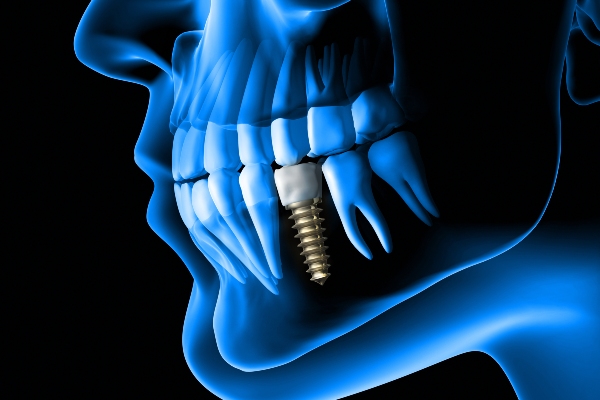 Dental implants can bring back stability and aesthetic value to your mouth. Losing at least one tooth can affect your appearance. It can also affect the way you interact with other people. Getting implants is a big decision. That is why you need to know what the procedure entails. Here are the things you should expect when getting dental implants.
Dental implants can bring back stability and aesthetic value to your mouth. Losing at least one tooth can affect your appearance. It can also affect the way you interact with other people. Getting implants is a big decision. That is why you need to know what the procedure entails. Here are the things you should expect when getting dental implants.
The assessment
The dentist will assess the patient’s mouth first. This can help determine the true condition of the patient’s teeth, gum, and jawbone health. The dentist will order dental X-rays. Taking dental impressions and matching the color of the dental crowns will follow. These steps are important in providing a natural look.
Assessing the patient’s mouth will also determine how many teeth need replacements. The patient will inform the dentist how many implants the patient wants to have. Some implants will take additional planning with other dental health providers. The patient must discuss current medications and medical conditions. Taking antibiotics may be necessary to prevent infections.
The extraction
Teeth with severe damage will need replacements. The process will start by extracting these teeth. Removing the damaged teeth will clear the dental spaces. The dentist can then slice through the gum tissue and drill implant sockets for the titanium rods. Implanting the rods is possible during this step.
The patient and dentist will talk about the right anesthesia and sedation options. A local anesthetic will numb the implant areas. It will make the procedure painless. Removing the teeth will not take long.
There will be some pulling and pressure during the extraction. After this procedure, the patient must rest well. Sipping through a straw, blowing one’s nose, and smoking may prevent proper healing. Leaving the extraction sites alone is necessary for the patient’s full recovery.
The insertion of the rods
If the jawbone is healthy and strong, the dentist will place the titanium rods right away. A strong jawbone is important in supporting the rods. Some patients do not have thick jawbones. In this case, the patient will need bone grafting first. The dentist will place some healthy bone tissue on the areas of the jawbone that need them.
Once the patient’s jawbone heals after bone grafting, the patient will return to the clinic. Implanting the rods will follow. The dentist will stitch the gum tissue over the rods. This will help encourage healing. The fusion of the rods with the jawbone will take about three to nine months, depending on the patient’s ability to heal.
The abutment placement
After complete healing, the dentist will place the titanium abutment. The dentist will provide a local anesthetic first and then cut through the top of the rods and attach the abutment. Stitching the gum tissue around the abutment will help the area to heal. Recovering from this part of the procedure will take about two weeks.
The abutments will connect the dental crowns to the rods. This step will complete the placement of the dental implants. The dentist will tighten the abutments to stabilize them. This is important for chewing and biting.
The crown placement
The dentist will attach the crown or artificial tooth to each abutment. A crown can either be permanent or removable. Having many dental implants in the back of the mouth will need removable crowns for easy cleaning and replacements. Permanent crowns are often cemented or glued to the abutments.
Knowing what to expect when you get dental implants can help you make informed decisions
Dental implants are the most stable dental restorations that you can get. Knowing what to expect during the procedure can help you prepare for it in advance. Recovery may take time, but the stability that you get from dental implants will be rewarding. Working with your dentist can help with the possible success of this procedure.
Request an appointment or call Miami Implant & Family Dentists at 305-230-4040 for an appointment in our Miami office.
Recent Posts
A dental implant is widely considered the tooth replacement solution that most closely resembles a natural tooth in durability, functionality, and appearance. However, like natural teeth, dental implants require diligent and consistent care to ensure longevity. Incorporating proper dental implant care into your oral hygiene routine can prevent complications and keep your smile healthy for…
Dental issues can impact confidence, health, and overall well-being. Fortunately, modern dentistry offers a transformative solution: teeth in a day. This procedure offers patients an option to fully restore the function and appearance of their smile in a single appointment, removing the need for multiple visits over several months. With advancements in dental implant technology,…
Many people resort to using dentures instead of dental implants in managing tooth loss. Dentures may restore the look of the lost tooth or teeth, but they do not compare to implants. Many dentists may recommend shifting to implants. The goals are to increase comfort and improve function. If you want to know how to…


